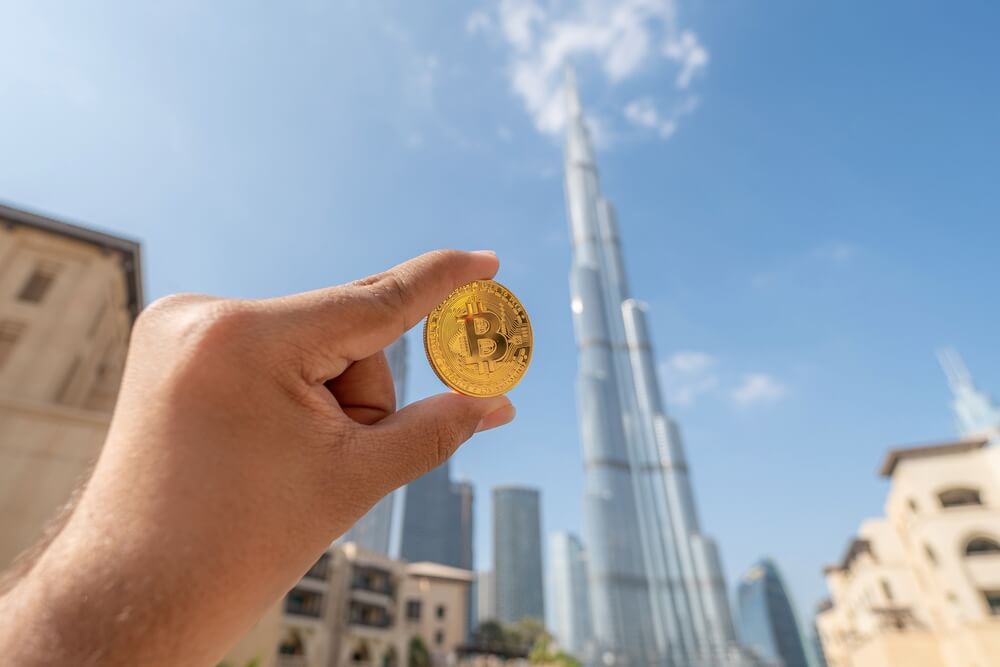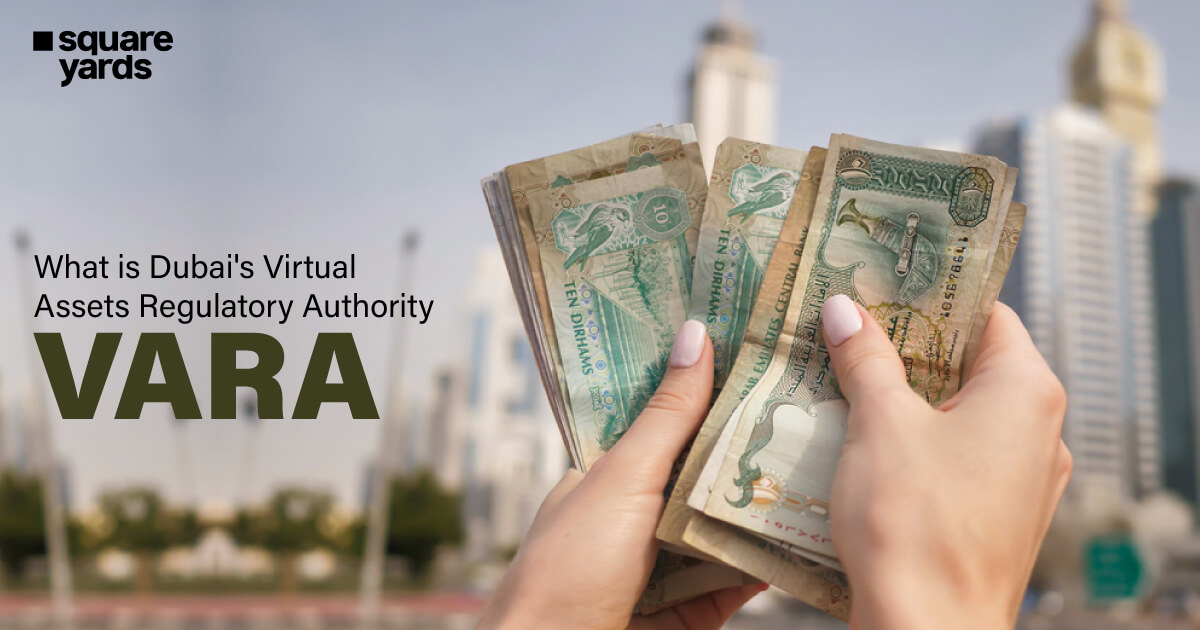A once-dark Gulf port where traders traded electronics, textiles, pearls, and gold has evolved into the hub of the Arab world’s finance, media, travel, aviation, operations, innovation, and funding. Even though oil and gas contribute only 6% of Dubai’s GDP, the city-state has doubled the size of its economy since 2000, outpacing even China and the Asian tiger economies in terms of annual economic growth. Similar to Singapore’s Temasek, the emirate’s leading state-owned partnerships, like Dubai Holding and Dubai International Capital, have used crucial global speculation to bring productive assets and attract new virtual assets regulatory authority Dubai.
Dubai in UAE is an incredible economic powerhouse that is guiding the UAE toward a lucrative future because it is home to tech start-ups and top-notch universities! The Dubai Virtual Assets Regulatory Authority (VARA) was established to assist the virtual assets community as virtual assets, such as NFTs and cryptocurrencies, gain popularity. So, if you’re interested in future possibilities, this guide will familiarise you with the legal system.
Dubai Virtual Assets: What Are They?

The term “virtual asset” refers to a representation of value which is the digital form that can be exchanged for money or other items online. Virtual assets come in a variety of forms, including cryptocurrencies, security tokens, and NFTs (Non-Fungible Tokens).
The digital economy in the UAE generates about $27.2 billion or AED 100 billion, or 4.3% of the nation’s GDP, according to statistics released by the Government of Dubai. Due to the industry’s enormous popularity, a sophisticated legal framework is required to protect investors and lay out rules for the sector’s governance.
-
Examples of Virtual Assets
Some of the best-known examples of Cryptocurrencies include:
-
- Bitcoin,
- Ethereum, and
- Dogecoin
Depending on the environment in which they are used, governance tokens, non-fungible tokens (NFTs), and gaming tokens may all be regarded as virtual assets.
What is VARA (Virtual Assets Regulatory Authority) Dubai?

On February 28, 2022, His Highness, Sheikh Mohammed bin Rashid Al Maktoum, Prime Minister and Vice President of the United Arab Emirates and Ruler of the Emirate of Dubai, issued Law No. 4 of 2022, which governs virtual assets in the city. The law established the Dubai Virtual Assets Regulatory Authority, or VARA, on March 11, 2022, when it went into effect.
Excluding Dubai International Financial Centre, the authority is responsible for overseeing the virtual asset industry throughout the emirate, which includes zones for special development and free zones. The creation of VARA is a step in the Dubai Securities and Exchange Higher Committee’s plan to make the UAE a major contender in the virtual asset market.
VARA, affiliated with DWTCA or Dubai World Trade Centre Authority, will also approve licences for operators, products, exchanges, and digital assets. The operating headquarters of VARA will be located in DWTC’s free zone, giving the Virtual Assets community the assistance it needs to thrive in the area.
-
Dubai Law on Virtual Assets
In accordance with this, the Emirate of Dubai has passed Law No. 4 of 2022 (Dubai Virtual Assets Law), which aims to impose regulations on the international virtual asset market within the Emirate of Dubai. The law strikes a balance between the need for virtual assets to be regulated and the need for business growth.
The Dubai International Financial Centre is not covered by this law, but special development zones and free zones are. The law became operative on March 11, 2022.
According to Article 2 of the Dubai Virtual Assets Law, virtual assets are as follows.
A value representation in the digital realm that can be exchanged, transferred, used as a means of exchange or payment, or invested in. This covers Virtual Tokens and any other digital representation of value that VARA deems appropriate. Additionally, it offers a distinct definition of a virtual token in Article 2. An electronic representation of a group of rights that can be bought, sold, and exchanged online via a virtual asset platform.
The “Dubai Virtual Assets Regulatory Authority” (VARA) has been established in Dubai by Dubai-Virtual-Assets-Law. Due to its responsibility for regulating, observing, and managing the services for the virtual assets in Dubai, the VARA is a significant player in the virtual asset sector. It has the right to categorise virtual assets, determine their value, and set the standards and guidelines for their trading.
A prior permit from VARA would be required in order to provide services related to the management and operation of virtual asset platforms. Permissions from the VARA are also required for any services connected to virtual asset wallets, management, or control services, safekeeping services, or trading in virtual tokens. All of these services are under the control of VARA, which also has the authority to halt or suspend virtual asset trading within the Emirate of Dubai.
These activities require the person to establish their business in Dubai and have the appropriate licence from the commercial licensing authority in the Emirates, in addition to the permit from VARA. Given the novelty of these laws, their successful application is still uncertain.
-
VARA Regulatory Framework For Crypto and Virtual Assets
VARA has issued regulations pertaining to the marketing, advertising, and promotion of virtual assets during its first administrative order (Administrative Order 1/2022, dated August 18, 2022). (Marketing Regulations).
Who is it intended for?
-
- All businesses, whether domestic or international, facilitate the marketing of virtual assets and provide services to clients who are residents.
- Any organisation that is not permitted by VARA but still wants to engage in marketing must apply for authorisation from VARA or present a valid permit issued by a competent authority outside of the United Arab Emirates.
- Marketing by a company:
- It is not necessary to adhere to the Marketing Regulations if no virtual assets activity is being conducted in Dubai,
- The activity originates outside the UAE, and
- No UAE residents are being targeted.
However, VARA will have the power to take action if it believes that such marketing threatens its reputation or the reputation of the UAE or Dubai.
-
Office of VARA
By establishing its Metaverse HQ in the exciting virtual environment of “The Sandbox,” Dubai’s Virtual Assets Regulatory Authority (VARA) declared its entrance into the Metaverse.
As the first regulator in the world to debut in the Metaverse, VARA aims to facilitate collaborative interaction between international regulatory authorities, industry thought-leaders, and VASPs (virtual asset service providers) on a global scale.
-
Is There a Website for the Virtual Assets Regulatory Authority?
The official website of Virtual Assets Regulatory Authority Website is https://www.vara.ae/en/
VARA Dubai’s Objectives
The Dubai Virtual Asset Regulation Law offers the framework for defending investor rights and ensuring industry governance as part of plans to build a robust digital economy. VARA must accomplish the following goals:
-
- Enhance Dubai’s competitive advantage for the growth of a digital economy and promote it as an international hub.
- Increase interest in virtual asset services and promote financial investment.
- Encourage virtual asset firms to establish a base in Dubai.
- Create rules for those who deal in virtual goods to stop illegal activity.
- Regulate and keep an eye on all virtual asset-related issues.
Dubai’s VARA Activities
The following responsibilities and authorities are vested in the Dubai Virtual Assets Authority by the Dubai Virtual Asset Regulation Law:
-
- Legislation governing virtual asset services should be proposed.
- Create a policy that is general and a strategic plan to govern virtual asset services.
- Control, monitor, and supervise the operations of virtual tokens and assets.
- Regulate virtual asset companies, grant them licences, and monitor compliance.
- Create guidelines to control activities involving virtual assets.
- Classify the various kinds of virtual tokens and assets, and establish guidelines and standards for trading them.
- Protect beneficiaries’ personal information in collaboration with the Dubai Digital Authority.
- Track distributed platforms, wallets, and virtual assets. blockchain technology to stop price manipulation of virtual assets.
- Inform and enlighten beneficiaries about the risks associated with virtual assets.
Some Useful Articles For You :
| Guide To Dubai Electricity And Water Authority | Dubai Electricity And Water Authority |
| About DEWA Disconnection Process | DEWA Disconnection Process |
| Sharjah’s Online SEWA | Online SEWA |
| Everything About RERA Dubai | RERA Dubai |
| RERA Tenancy Laws in Dubai | Dubai Tenancy Laws |
Frequently Asked Question (FAQs)
The UAE is committed to the new economy and has faith in the sustainability and security of Web3 ecosystems, and the asset regulator VARA is the first to show that it has a legitimate inclusion in the metaverse. VARA will build its MetaHQ hub in The Sandbox to reflect these beliefs.
Dubai, the centre of the UAE's cryptocurrency industry, doesn't accept cryptocurrency as a mode of payment for goods, so anyone wishing to buy something with digital money must visit an exchange house that converts it into fiat currency, such as UAE dirhams or US dollars.
Any digitally transferable, exchangeable, or redeemable representation of value is referred to as a virtual asset. The electronic representation of fiat money is excluded. By implementing the same protections as the financial sector, the FATF standards guarantee that virtual assets are handled fairly.
A few examples of virtual assets include Litecoin, Ethereum, Bitcoin, and Dogecoin.
Bitcoin and Ethereum are the most commonly used virtual assets.
Activities involving virtual assets are governed by the Abu Dhabi Global Market (ADGM), which has a thorough regulatory framework in place. What is the VARA Sandbox in Dubai?
Can cryptocurrency be used to make payments in the emirate of Dubai?
What are virtual assets FATF?
What are some examples of virtual assets?
What are the most widely used virtual assets?
Are virtual assets regulated?




